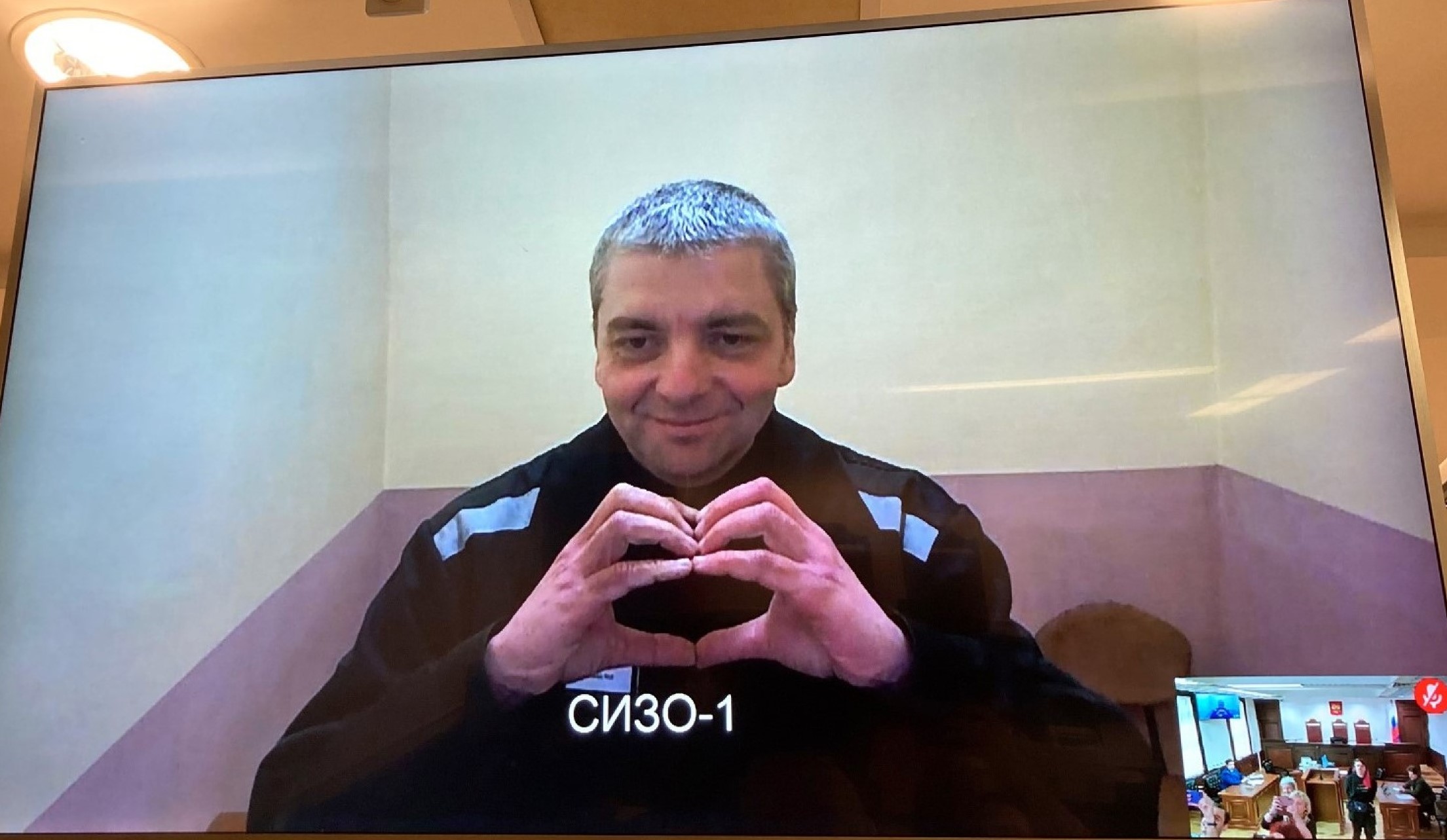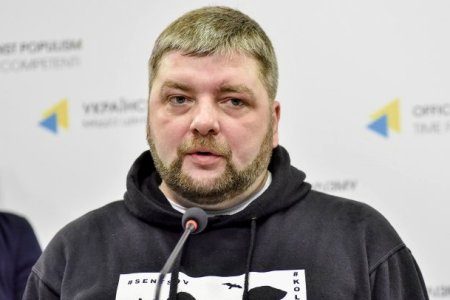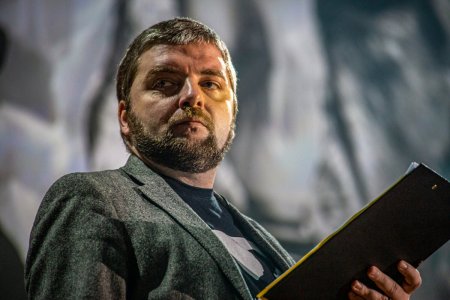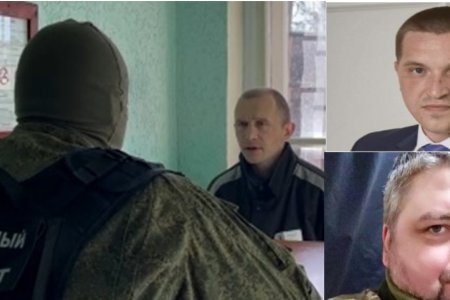
Russia’s supreme court, at cassation appeal, has refused to examine compelling evidence that Maksym Butkevych, renowned Ukrainian human rights defender, journalist and prisoner of war, could physically not have committed the ‘crimes’ he was accused of. On 13 March 2024, it upheld the 13-year sentence passed by an unrecognized ‘court’ in Russia’s proxy ‘Luhansk people’s republic’ [‘LPR’] on the basis solely of ‘testimony’ which Butkevych has himself stated was false, and given under torture and threats of more torture.
Maksym is well-known far beyond Ukraine, which is doubtless one of the reasons why Russia is effectively hiding him on occupied territory. He was forced to take part in the hearing on 13 March from the Luhansk SIZO [remand prison] by video link, though was, at least, represented by an independent lawyer, Leonid Solovyov. The latter began the hearing by asking for two crucial pieces of evidence to be added to the material of the case, both of them proving Butkevych’s innocence. The first of these was telephone billing from 4 June 2022 which proved that Butkevych was in Kyiv, and not in Sievierodonetsk where the alleged crimes are supposed to have taken place. The second document was testimony given to Solovyov from a French woman who met with Butkevych in Kyiv on 7 June 2022. Graty had reported, back on 10 March 2023 when Russia’s ‘Investigative Committee’ announced, post-fact the sentence, that there was considerable evidence that Butkevych’s unit had only been sent to Luhansk oblast on 14 June 2022 at the earliest. The publication mentioned correspondence confirming that Butkevych himself had been in Kyiv oblast during the first two weeks in June and could not, therefore, have been in Sievierodonetsk on 4 June. Solovyov also pointed out that the alleged ‘confession’ from Butkevych had been extracted under duress.
The prosecutor, identified only by her surname Fillipova, objected to the inclusion of the documents, using different excuses. She challenged the telephone billing, claiming it had not been notarized, and the French woman’s testimony on the grounds that a cassation court is not there to consider the essence of the case. The three judges: Oleg Kimovich Zatelelin; Yevgeny Yurievich Zemskov and Nikolai Pavlovich Dubovik withdrew to the consulting chamber and, typically, rejected the applications. The excuse was, essentially, that the defence was asking a cassation court to ‘re-examine’ the evidence which is not its role.
That may be the case in a law-based country, where the evidence in a case is examined properly by a first-instance court and then, where challenged, by a court of appeal. Here, however, Butkevych was effectively ‘tried’ in secret by an unrecognized ‘court’ on occupied territory, without any access to independent lawyers, and without international monitors. As mentioned, the very fact that the ‘trial’ had taken place and ended with a 13-year sentence was learned only after it had taken place from the Investigative Committee report on 10 March 2023. That is of particular concern given that both Butkevych and his lawyer have stated unequivocally that the alleged ‘testimony’ which Butkevych is shown on the attached video giving, was extracted through torture and threat of torture. The same is undoubtedly true of the other two prisoners of war Viktor Pokhoziy and Vladislav Shelya shown on the video and said to have been ‘sentenced’ in the same ‘trial’ four days earlier, on 6 March 2023.
On 22 August 2023, three ‘judges’ from Russia’s first court of appeal in Moscow - Pavel Vladimirovich Melekhin* (presiding); Larissa Sergeyevna Izotyeva and Yury Viktorovich Troyan took almost no time to uphold the sentence passed by a kangaroo court. Yes, it was they who were supposed to examine the evidence that Butkevych was physically far from Sievierodonetsk on 4 June 2022, but they ignored this, as they did the grounds for doubting a case based solely on ‘confessions’ obtained while he was held incommunicado and without an independent lawyer.
In his address, Maksym reiterated that he had not even been in Sievierodonetsk on the day in question. He pointed out that the court had not tried to find out why, after two months in captivity, he had retracted his testimony. He had given the original ‘testimony’, he explained, because the ‘investigator’ promised that if he ‘cooperated’, he would be released more quickly in an exchange. “Another argument” was that “if I refused, I would be subjected to various methods of physical duress. Some [methods] were demonstrated to me”. As MediaZona, which reported from the courtroom, notes, Maksym was clearly choosing his words very carefully. It is, in fact, near certain that the methods of torture were not merely ‘demonstrated’, but were applied against him, and that they involved grave forms of torture. Russia’s systematic torture of prisoners of war has been noted by the UN-created Independent International Commission of Inquiry on Ukraine, as well as by the UN’s Rapporteur on Torture.
As Maksym also pointed out, he has spent his life defending human rights, and would certainly not have committed any crimes against civilians or other war crimes. He was active for many years in holding Ukraine’s successive governments to account over their treatment of refugees, and was a co-founder of both Hromadske Radio and the ZMINA Human Rights Centre. From the beginning of Russia’s aggression against Ukraine in 2014, he coordinated a resource centre for those forced to flee their homes (internally displaced persons). He saw no choice after Russia’s full-scale invasion of Ukraine but to take up arms and joined Ukraine’s Armed Forces. He was soon put in charge of a platoon which was deployed on the frontline in the Luhansk oblast in the second half of June 2022. It was then that they were seized by Russian forces near the village of Myrna Dolyna.
Butkevych and all of the other are, without any question, prisoners of war. It was, however, clear from the smear campaign within days of his capture that the Russians did know about Butkevych’s civic position and human rights defence work. There were, almost certainly deliberate, attempts to confuse Maksym Butkevych, who has campaigned tirelessly against all forces of hate speech and discrimination, with another Butkevych who had made a highly inflammatory comment about people in Donbas.
Russia has a standard selection of charges for its ever-mounting number of illegal ‘trials’ of Ukrainian prisoners of war, with these seen in the charges against Butkevych. He was convicted of violating the rules of war under Article 356 § 1 of Russia’s criminal code and of‘attempted murder’ (30 § 3) and deliberate damage to property under Article 105 § 2.a, 2e. It was claimed that on 4 June 2022, Butkevych shelled the entrance to an apartment block in Sievierodonetsk, with a mother and daughter giving ‘testimony’ as the supposed victims. These two individuals did not appear in ‘court’ on 22 August, and another supposed ‘victim’ sent a statement claiming that he had incurred ‘significant damage’, but also failed to appear. As well as the 13-year harsh-regime prison sentence passed against Butkevych, he was also ordered to pay preposterously high amounts of supposed ‘compensation’ to these three ‘victims’ despite the proof that he was very far from Sievierodonetsk on 4 June.


